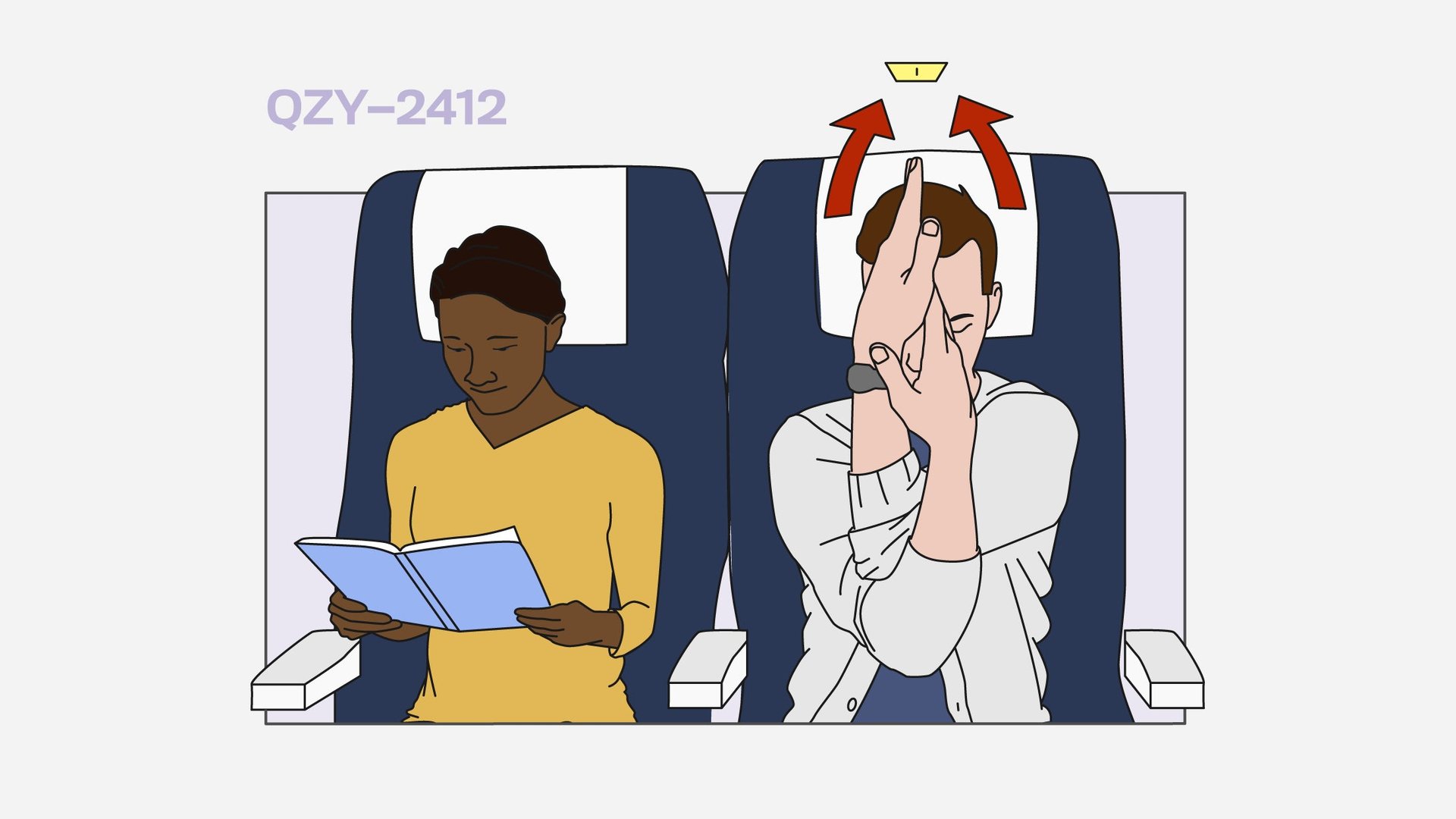These in-flight yoga poses help make travel less miserable
Holiday air travel can be stressful on the mind and tiring on the body. Hours spent squeezed in an ever losing battle of leg and elbow room, while you inhale dry, recycled air begging that the circular conversation next to you stops. It’s easy to wish to be anywhere but here, stuck on a plane, then you remember your destination: your childhood home.


Holiday air travel can be stressful on the mind and tiring on the body. Hours spent squeezed in an ever losing battle of leg and elbow room, while you inhale dry, recycled air begging that the circular conversation next to you stops. It’s easy to wish to be anywhere but here, stuck on a plane, then you remember your destination: your childhood home.
When it comes to mood, circulation, and—possibly—life expectancy, yoga can help mitigate the unpleasantries of flying. That’s why we consulted with a San Fransico-based Yogi, Lelia Lynn Johnson, to devise an airplane-yoga practice for the stressful holiday season.
Let’s take a deep breath and begin.
If you’re looking to stay limber this travel season, bookmark this page or download the PDF and open it when you’re set for take off.
Using inflight stretching to center her mind and keep her body limber during cross-country flights is key to yogi Lynn’s practice. For her, whether you’re at the office or stuck in a middle seat your body tends to revert into its basest of postures. “None of us are symmetrical,” she says, “so when we’re sitting, we’re going into whatever your body wants to slump into.” This exacerbates your trouble spots: sore back, tight shoulders or hips.
How air travel ruins your mood
Even with the pressurized cabin, you will still experience the same air pressure if you were at an elevation of 6,000 to 8,000 ft (1,800 to 2,400 m). That’s enough to keep your blood from absorbing oxygen, according to the World Health Organization.
Researchers have shown that even small deficiencies of oxygen affect people’s mood. So when you feel nervous that window seat gentleman is going to start talking to you, It could be the cabin pressure’s effects on tension and anxiety. Or if you just can’t stay awake while watching the season finale of The Good Place, it might be lack of oxygen fatiguing you.
How air travel ruins your body
As for physical stress, remaining in a confined space for multiple hours is rough on the body. As Dr. Steven Murray Director of the Physical Education program at UC Berkeley, puts it “not being able to move can result in blood pooling in the extremities, especially the feet and ankles.” Sitting on planes is just one more environment for human’s increased sedentary lifestyle. A lifestyle that the Annals of Internal Medicine’s research shows may shorten your life. At a bare minimum, Dr. Murray commented, “I would recommend a person to perform basic movements with the legs and feet.”
Did you find this practice useful? Are there other poses would you like to see modified for inflight stretching? Reach out to us at here.